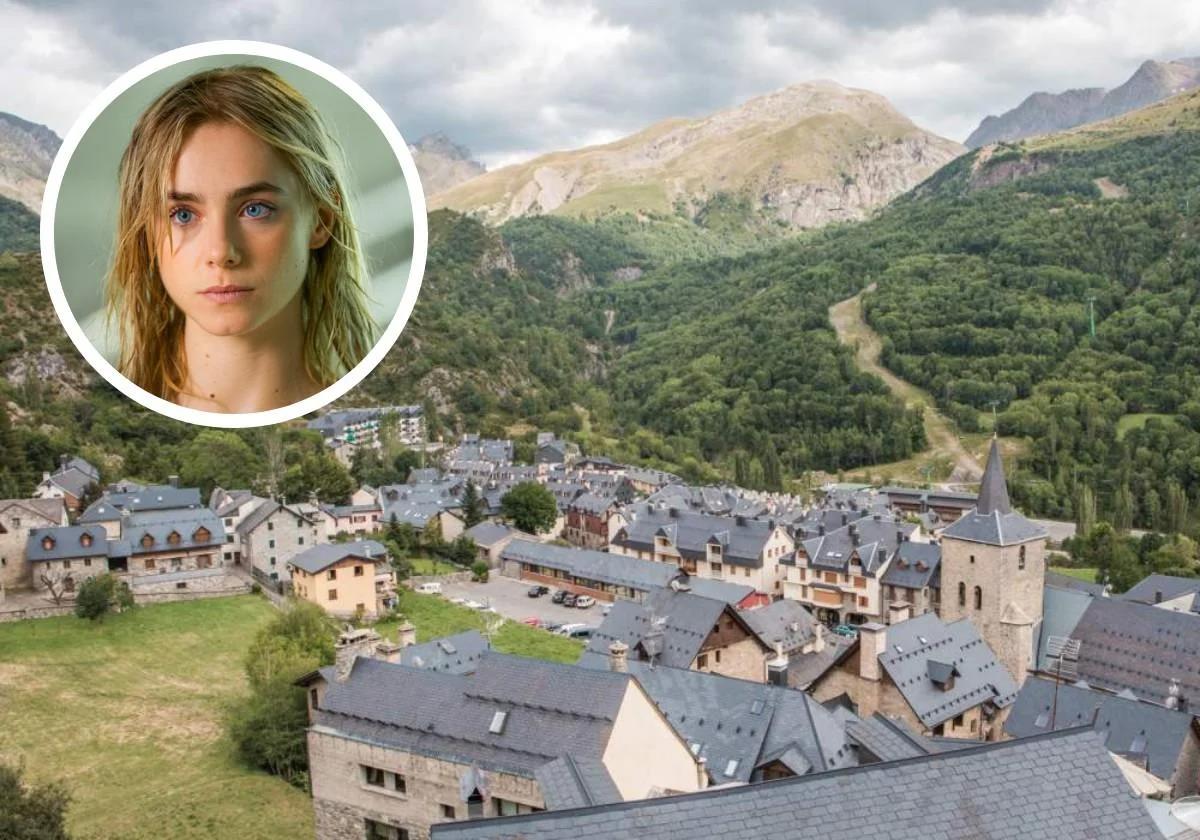The Spanish village where a Netflix hit series was filmed: a natural paradise complete with spa and ski resort
This municipality served as the main shooting location for Olympo, which is taking audiences on the streaming platform by storm ·
Patricia Marcos
Panticosa
Thursday, 3 July 2025, 22:56
Olympo has become the latest must-see viewing phenomenon on Netflix. The fictional drama started streaming on Friday 20 June in Spain and quickly became the most-watched series. Starring Clara Galle, Nuno Gallego, Nira Osahia and Agustín Della Corte, among others, it tells the story of a group of elite athletes who live and train together in a high-performance sports facility.
Specifically, Olympo is set in the fictitious Centro de Alto Rendimiento Pirineos, where the country's elite athletes train. Among them is Amaia, the self-demanding captain of the national artistic swimming team. However, everything changes when her best friend, Núria, surpasses her for the first time and the athlete begins to suspect that some of her teammates are improving their performance by doping.
The series, created and written by Jan Matheu, Laia Foguet and Ibai Abad, began filming in July 2024. As the main location for the series, Zeta Studios chose this privileged spot in the Aragonese Pyrenees.
The Pyrenean high-performance sports centre in Olympo is actually the Balneario de Panticosa, one of the most popular thermal spas in Spain, located in the Tena Valley, about eight kilometres from the Huesca province town of Panticosa.
A leading thermal spa in Spain
Panticosa spa served as the exterior to the athletes' training facility at the centre of the plot of Olympo. The indoor sports facilities were filmed on Netflix sets, always kitted out to match the architecture of this place.
Also known as Panticosa Baths, they are located at an altitude of 1,630 metres in a meadow surrounding the Ibón de Baños, a natural lake that collects the waters that feed into the splendid Caldarés river. Due to its high-altitude location, the average temperature in this area is around 6C.
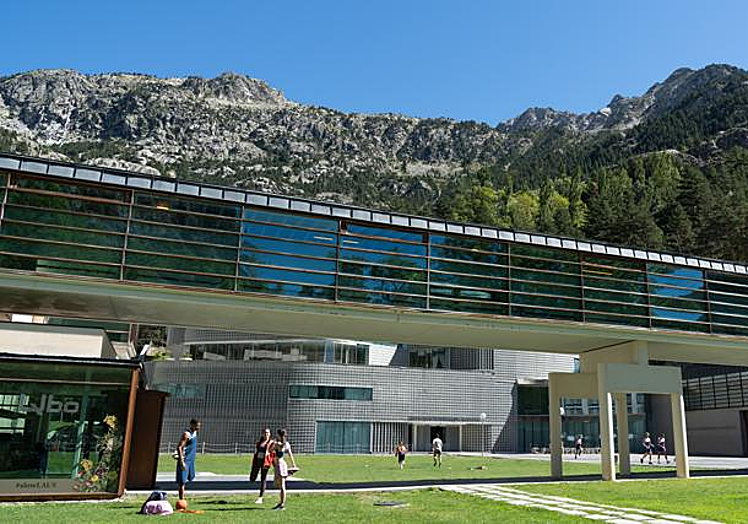
Zoom

The origins of Panticosa's spa baths date back to Roman times, although the first building was not erected until the 17th century. In the 19th century, its thermal baths were revived. Illustrious guests have passed through these facilities, including Alfonso XIII, Ortega y Gasset, Santiago Ramón y Cajal and Primo de Rivera.
Over the years this spa became one of the most famous and distinguished throughout Spain for its mineral-rich thermal waters with therapeutic properties. In 1966, it was declared a site of national tourist interest.
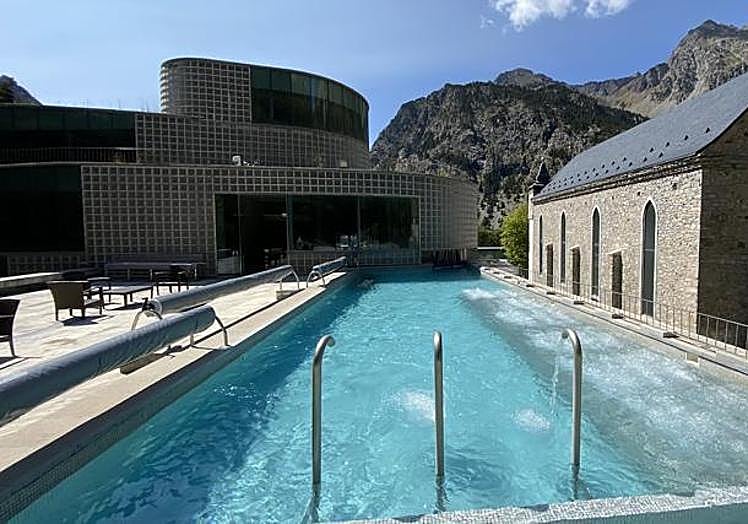
Zoom

Among its architectural highlights are the Casino building, the Grand Hotel, the Tiberio hot springs, the Quiñón spa, the Capilla del Carmen chapel and the headstones of Las Fuentes (the six springs with different healing properties). It also has restaurants where you can sample the local cuisine, such as El Lago, La Brasserie and La Fontana.
The spa facilities are surrounded by mountains and waterfalls, making it the perfect place to relax. In addition to its healing waters, these thermal springs are an ideal starting point for exploring the surrounding natural beauty.
What to see in Panticosa
Very close to the spa is the municipality of Panticosa, with a population of just 800 inhabitants, according to Spain's INE national statistics institute. Located in the Tena Valley, it is characterised by its cobbled streets and stone and slate houses, preserving the essence of the architecture so typical of the high mountain areas. It is also home to the 16th-century Gothic-style church of Asunción de Nuestra Señora.
Panticosa is an important tourist destination in the Huesca Pyrenees, not only because of its proximity to the spa, but also because of its proximity to the famous ski resort of the same name, which shares slopes with Formigal. It is considered the most important ski destination in Spain with a total of six valleys and nearly 180 kilometres of skiable slopes.
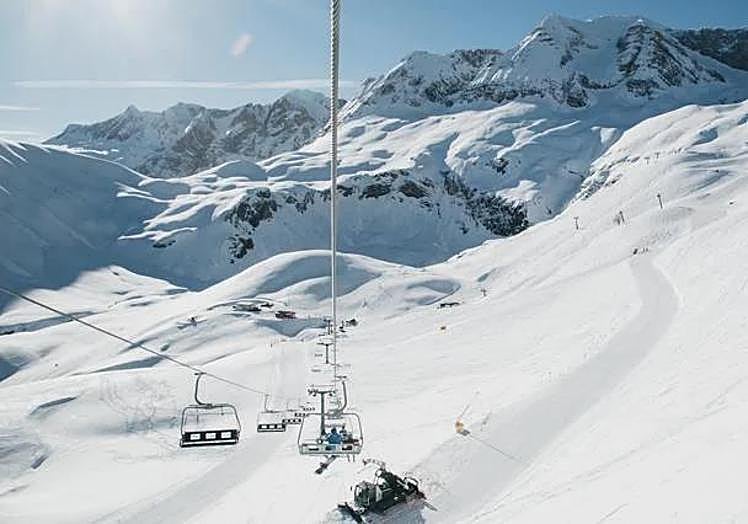
Zoom

Panticosa is also a major draw for hiking enthusiasts. Flanked by peaks of over 3,000 metres high and criss-crossed by rivers andwaterfalls, it offers spectacular scenery year-round for outdoor pursuits such as climbing, canyoning and hiking.
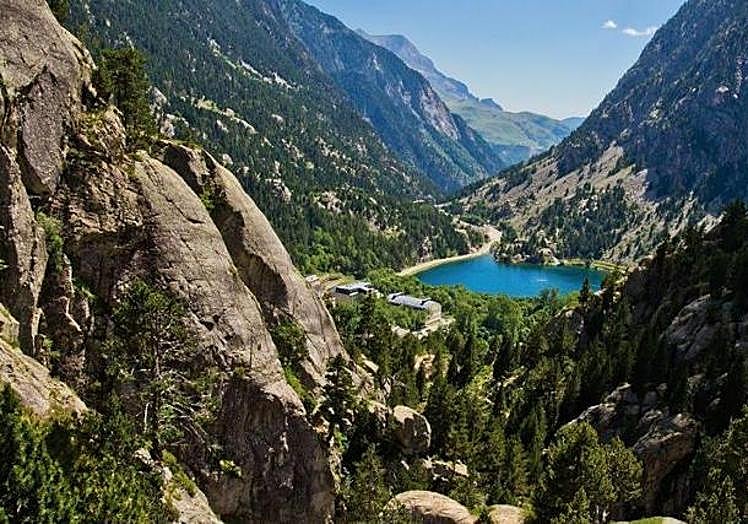
Zoom

For instance, there are some great hiking trails to Garmo Negro, Ibones de Ordicuso or the Argualas massif. Furthermore, a must-see in Panticosa is the footbridges over the Caldarés river, incredible suspended walkways some 800 metres long that will leave you breathless.
